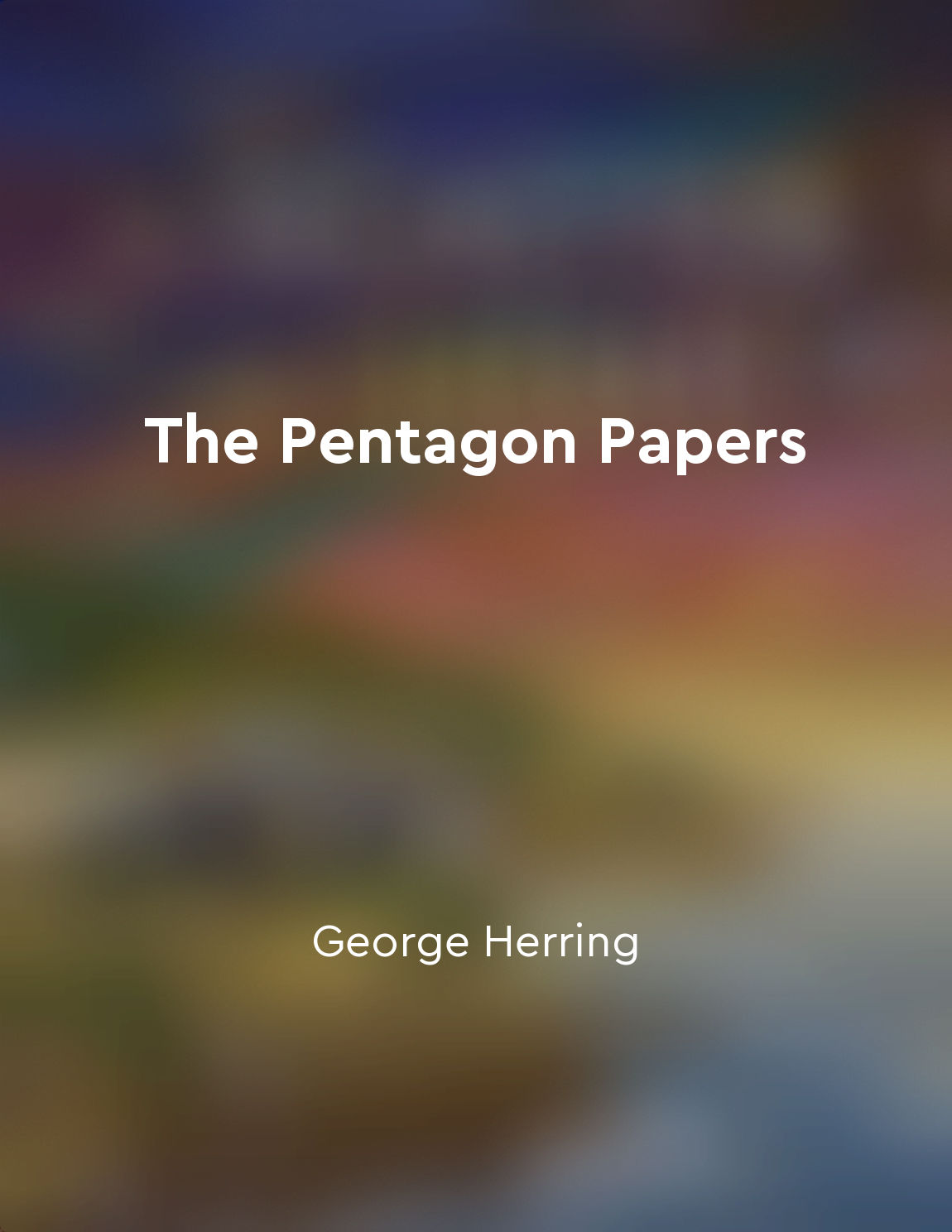Constitutional principles were tested from "summary" of The Pentagon Papers by George Herring
The release of the Pentagon Papers was a defining moment in American history, as it put the constitutional principles of freedom of the press to the test. The government's attempt to block the publication of the classified documents raised questions about the balance between national security and the public's right to know. As the case made its way through the courts, the very foundation of the First Amendment was in question. The Supreme Court's decision to allow the publication of the Pentagon Papers was a victory for the principle of government transparency. The justices recognized the importance of a free press in holding those in power accountable. The ruling set a precedent for future cases involving the publication of classified information, reaffirming the rights enshrined in the Constitution. The release of the Pentagon Papers also highlighted the tension between the government's need for secrecy and the public's right to information. The documents revealed the extent of government deception and manipulation in the Vietnam War, leading to a loss of trust in the authorities. This breach of trust ultimately led to a reevaluation of the government's actions and policies.- The publication of the Pentagon Papers was a pivotal moment in American history, testing the boundaries of constitutional principles and challenging the government's authority to restrict information. It underscored the importance of a free press in a democratic society and served as a reminder of the need for transparency and accountability in government actions. The legacy of the Pentagon Papers continues to shape debates over national security, freedom of the press, and the limits of government power.


